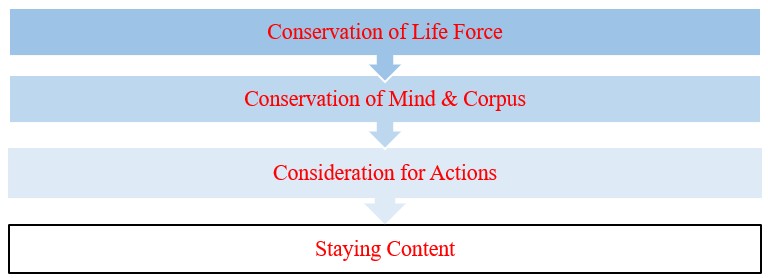Alejandro Jodorowsky’s poignant metaphor, “Birds born in cages think flying is an illness,” encapsulates a profound truth about human perception, societal norms, and the interplay between freedom and constraint. This quote, often cited in discussions of psychological oppression and cultural conditioning, invites us to reflect on how our upbringing, religious values, and societal structures shape our understanding of freedom, autonomy, and fulfillment. In this blog, we’ll explore the implications of Jodorowsky’s words, linking them to our perceptions, religious values, and human behavior, while offering a balanced perspective on how we can improve our outlook, foster fairness, and lead a more wholesome, satisfied life.
The Metaphor: A Lens on Perception
At its core, Jodorowsky’s quote speaks to the power of conditioning. A bird born in a cage, never having tasted the freedom of flight, perceives its confinement as normal. The act of flying, which is its natural state, becomes foreign, even threatening. This metaphor mirrors how humans internalize societal norms, cultural expectations, and religious teachings from a young age. Our perceptions are shaped by the “cages” we are born into. Whether they are familial traditions, economic circumstances, or religious doctrines.
Psychologically, this aligns with the concept of learned helplessness, a phenomenon studied by Martin Seligman in the 1970s. When individuals are repeatedly exposed to oppressive or restrictive environments, they may come to believe they have no control over their circumstances, leading them to accept their “cage” as the only reality. For example, in societies where patriarchal interpretations of religion dominate, women may internalize the idea that their role is subservient, viewing gender equality as unnatural or even dangerous. Similarly, in highly individualistic cultures, the idea of communal responsibility might feel restrictive, even though it could foster greater societal well-being.
Religious Values: A Double-Edged Sword
Religion often plays a significant role in shaping the “cages” of perception. On one hand, religious values can provide a sense of purpose, community, and moral grounding. On the other hand, rigid or dogmatic interpretations of religion can create metaphorical cages that limit personal growth and autonomy. In some conservative religious communities, practices like the veiling and segregation of women or strict gender roles may be upheld as divine mandates, discouraging women from exploring their full potential.
This is where Jodorowsky’s metaphor resonates: if one is raised to believe that stepping outside these norms is sinful or dangerous, the idea of “flying” or living freely and authentically, can feel like an “illness”, a deviation from the “right” path.
However, it’s crucial to approach this topic with fairness. Not all religious frameworks are inherently oppressive, and many individuals find deep satisfaction in adhering to their faith’s traditions. The challenge lies in distinguishing between the core teachings of a religion, which often emphasize love, justice, and equality, and the cultural or patriarchal interpretations that may distort those teachings.
Human Behavior in Society: Freedom vs. Constraint
Jodorowsky’s quote also prompts us to examine how societal structures influence human behavior. In the study of cultural psychology, societies are often categorized as “loose” or “rigid.” Loose societies, like many Western democracies, prioritize individual freedom, encouraging self-expression and innovation. Rigid societies, often found in more traditional or collectivist cultures, emphasize constraint, valuing social norms and collective harmony over personal autonomy.
Both approaches have their strengths and weaknesses. Excessive freedom can lead to social disorganization and unpredictability, leaving individuals feeling unmoored and anxious. Conversely, excessive constraint can stifle creativity and autonomy, leading to resentment or rebellion.
In practice, this balance plays out in how we navigate societal expectations. For instance, in a rigid society, a young person might feel pressured to conform to traditional career paths or marriage norms, even if their passions lie elsewhere. In a loose society, the same person might struggle with the lack of guidance, feeling paralyzed by too many choices. In both cases, the “cage” of perception, whether it’s the belief that deviation is wrong or that structure is oppressive can prevent individuals from living authentically.
Improving Our Perception: Steps Toward a Wholesome Life
To break free from these metaphorical cages and lead a more satisfied life, we must first become aware of the lenses through which we view the world. Here are some practical steps to improve our perception, foster fairness, and learn more about ourselves:
- Question Your Assumptions: Reflect on the beliefs you hold about freedom, gender, religion, and success. Are they truly yours, or were they inherited from your environment?
- Engage with Diverse Perspectives: Exposure to different cultures, religions, and ways of life can broaden your understanding of what “flying” means.
- Balance Freedom and Constraint: A healthy society & a healthy individual requires a blend of autonomy and order. If you feel trapped by societal expectations, take small steps toward autonomy, such as pursuing a hobby or voicing your opinions.
- Practice Empathy and Fairness: Recognize that everyone’s “cage” is different. A person who finds fulfillment in a traditional religious lifestyle isn’t necessarily oppressed, just as a person who rejects those norms isn’t necessarily rebellious. By approaching others with empathy, we can foster a more inclusive society where diverse paths to fulfillment are respected.
- Learn About Yourself Through Reflection: Journaling, meditation, or seeking guidance can help you uncover the subconscious beliefs that shape your behavior. Ask yourself: What does freedom mean to me?
Conclusion: Embracing the Sky
Jodorowsky’s metaphor reminds us that our perceptions are not fixed. They are shaped by the cages we are born into, whether they are religious, cultural, or societal. While these cages can provide security and meaning, they can also limit our ability to live fully and authentically. By questioning our assumptions, engaging with diverse perspectives, and balancing freedom with constraint, we can learn to see flying not as an illness, but as a natural expression of our humanity.
Ultimately, leading a wholesome and satisfied life requires us to step outside our cages with curiosity and courage. It means recognizing that religious values, societal norms, and personal behaviors are tools for growth, not chains to bind us. By fostering fairness, empathy, and self-awareness, we can not only improve our own perceptions but also contribute to a world where every bird feels free to soar.













